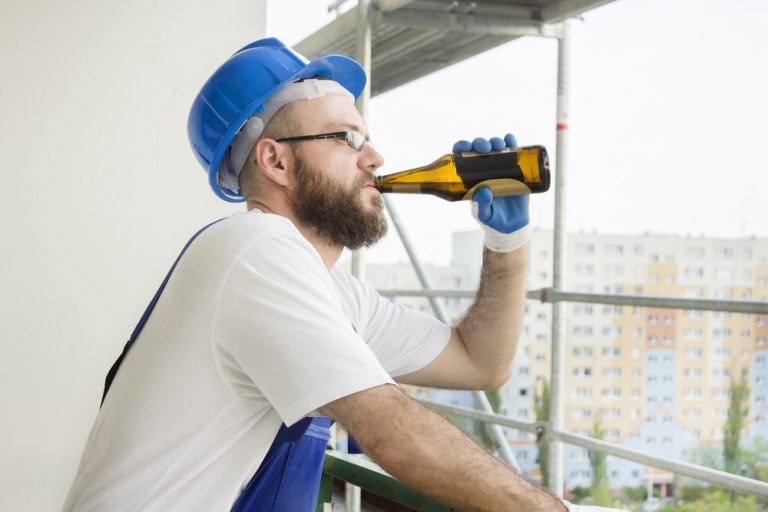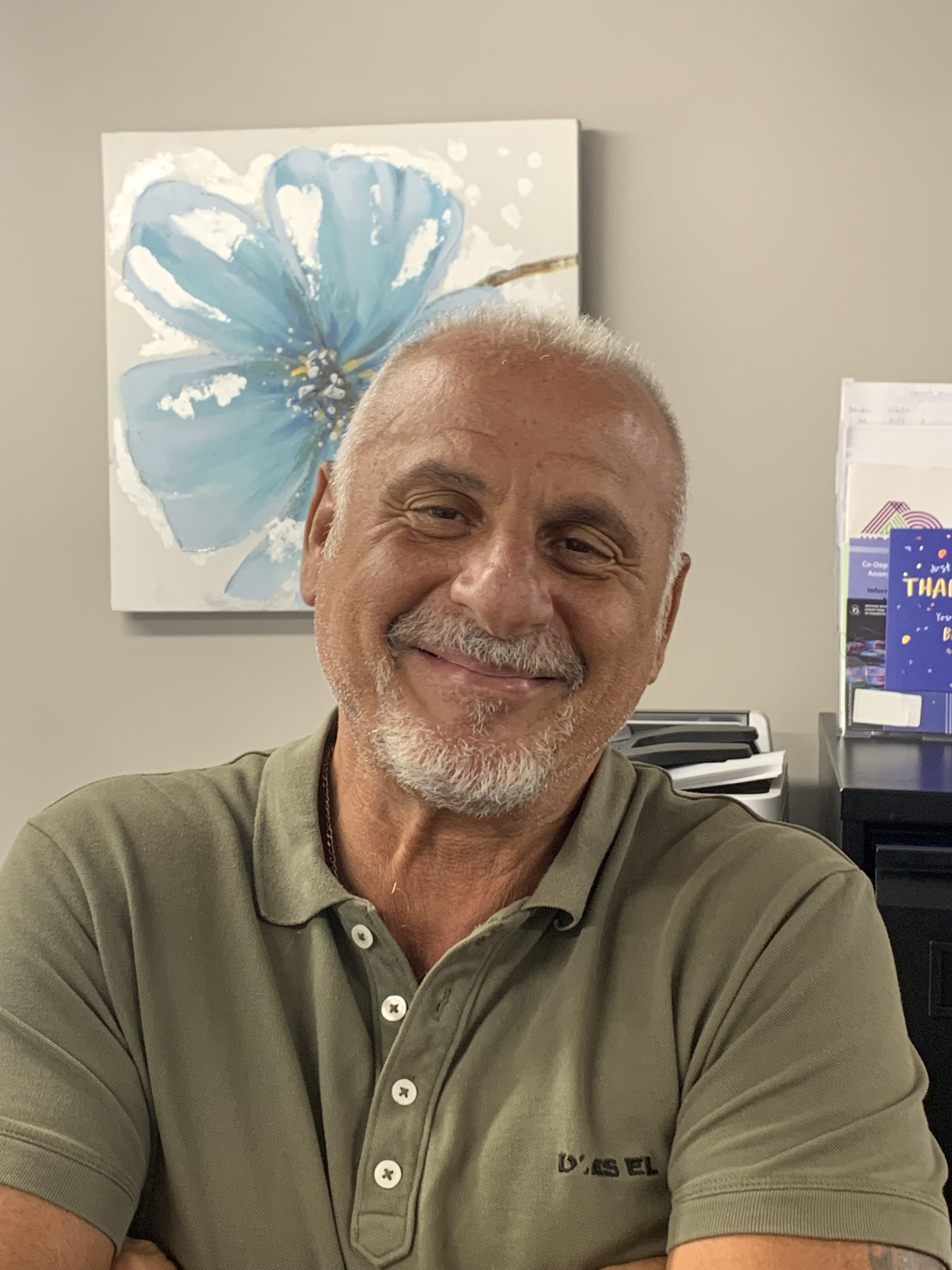Addiction is often thought of as a personal or private issue – youngsters using in their bedrooms, or employees using it to detach themselves from the stress of work when they get home. However, substance use disorder, including alcohol, drugs, and even behavioural addictions has been having a major impact in the workplace, as unfortunately it doesn’t respect office hours. Drug and alcohol misuse can affect employees’ health, safety, and productivity, and the detrimental effects can spill over into personal life and work projects, impacting overall well-being.
Employees who misuse drugs in the workplace can increase the risk of injuries and create unsafe working conditions for themselves and others.
The Silent Struggle

According to the National Safety Council, over 75% of people with substance use disorders are employed and substance misuse costs UK employers an estimated £36 billion annually in people taking time off, lost productivity, and staff turnover. Yet no one seems to be talking about it.
The types of workplace addictions include:
Substance Addiction
– Alcohol
– Prescription medication, like opioids and stimulants
– Illegal drugs, like cocaine and heroin
Behavioural Addiction
– Gambling
– Shopping
– Internet or smartphone use
– Sex or pornography
Signs of Addiction Working Overtime

We often compare addiction to the dramatic scenes we see in films, but actually addiction hides, especially in the workplace, where performance expectations and social stigmas may pressure staff to conceal their struggles.
Signs of Addiction:
1. Increased time off
Staff may start to turn up late, call in sick more, or disappear for long periods during the day that they can’t explain.
2. Decreased productivity
Missed deadlines, declining quality of work or lack of attention to detail – even high performers may suddenly struggle to meet the basic expectations that are needed to fulfil their role.
3. Physical signs
Although the physical signs of addictions are not always obvious, bloodshot eyes, unsteady movement, slurred speech, sudden weigh loss or gain and regular sniffing or coughing are often signs that someone’s struggling.
4. Erratic or unpredictable behaviour
Mood swings, anxiety, irritability, or withdrawn behaviour could just be down to a tough day at the office! But these are often the tell-tale signs for an addict, especially if it’s out of character.
5. Lack of concentration and memory
Struggling with conversations, forgetting to do tasks, or asking the same question repeatedly can be a sign of cognitive impairment which is often associated with substance use.
6. Unusual financial problems
Addiction is costly – in more ways than one. If an employee is struggling to make ends meet, requesting salary advances, or in worst case scenario, committing theft or fraud, this could be a big sign.
7. Increased workplace accidents or injuries
For jobs that need physical activity or machinery use, addiction can create serious safety risks for them, and those around them.
8. Social isolation or conflict
Addiction likes to get you alone, so addicted employees may start to isolate themselves, or become dishonest or defensive with their colleagues.
9. Mental and emotional stress
Jobs that are mentally or emotionally stressful, or involve significant physical or mental stress, can increase the risk of substance abuse. Mental stress and emotional stress from work can spill over into personal life, increasing the risk of addiction and affecting overall well-being.
Careers with the Highest Addiction Rates

Addiction can affect anyone, in any job; however, some sectors are more vulnerable due to stress levels, culture, or access to substances. Here are some examples of the industries and the reasons for why they’re high at risk:
Construction & Trade
Physical pain, injury, physically demanding work, and macho culture. Construction workers face significant physical strain and health risks, leading to increased misuse of drugs, illicit drug use, drug use, drug or alcohol abuse, and heavy alcohol consumption. Misusing drugs in the construction industry can increase the risk of workplace injuries and create unsafe working conditions. The physical or mental stress of the job contributes to higher addiction rates.
Hospitality
Alcohol-fuelled environments, long hours, low pay, and high stress. Food service workers in the food service industry are particularly at risk, with problem drinking, alcohol misuse, and heavy drinking being prevalent due to irregular working hours and easy access to alcohol.
Healthcare
High stress, long shifts, and easy access to prescription drugs. Healthcare professionals are at risk of drug abuse and misuse of prescription medications, including prescription painkillers. The stress and access to substances can lead to substance abuse, and physician health programmes are available to support those struggling.
Creative/Media
Normalised substance use and high pressure. The arts and entertainment industry, including the entertainment industry and recreational industries, is known for its long-standing association with substance abuse, creative freedom, and irregular working hours, all of which contribute to higher rates of drug and alcohol use.
Finance & Law
Workaholism, access to stimulants, high stress, and mental health disorders. Law school and the pressures faced by younger lawyers, as highlighted by the American Bar Association, contribute to increased risk of substance abuse and mental health issues in the legal profession.
Sales Professionals
High demands, social environments, and pressure to perform. Sales professionals have higher rates of past-month illicit drug use and substance abuse, as reported by the Mental Health Services Administration, with mental health issues also being common.
Management Professionals
Management professionals often face high stress and responsibility, leading to increased substance use rates and reluctance to seek help due to job security concerns.
Police Officers
Police officers and other first responders experience high stress, trauma, and exposure to dangerous situations, leading to increased risk of binge drinking, drug addiction, and substance abuse.
Food Service Industry
The food service industry, including food service workers, is characterised by high stress, irregular hours, and easy access to alcohol, resulting in elevated rates of substance abuse.
Recreational Industries
Recreational industries, such as sports and leisure, also face unique challenges related to substance abuse due to diverse workforces and high-pressure environments.
According to the same data from the Mental Health Services Administration, these industries have substance abuse rates significantly higher than the national average, highlighting the need for targeted support and intervention.
Since COVID-19, even low-risk industries have seen a rise in substance use and mental health struggles due to remote work and burnout.
There’s No Shame in Addiction
No one should be ashamed of their addiction. It’s a medical condition, not a moral failure and companies should recognise this. By supporting employees who are going through addiction, with well-being, mental health programmes and education, they are in a better position to look after and keep their talent, while reducing harm on their staff. Whatever a member of staff is going through, if they reach out they should be made to feel heard and understood.
Are you Suffering from Addiction in the Workplace?
Whether it’s alcohol or prescription drugs, gambling or internet use, addiction can have a huge impact on safety, productivity and morale in the workplace, so recognising the signs early could ultimately save your job… and your life. You may feel like you’re alone, but you’re not – you can get the help you need without losing your job, or your dignity. Your journey to recovery and re-discovering the employee you were meant to be can start today, with the right help.
Recovery is Hard. Staying Silent is Harder
The first step to recovery is acknowledging you have a problem. It’s about being honest with yourself and how much your addiction is affecting you and your work, as well as your life outside of work. You’re not going to fix everything overnight, but admitting you have a problem is the most powerful step you can take.
Here are a few ideas to get you started:
Employee Assistance Program (EAP)
Like all companies, your workplace should be able to offer you this. It’s free and supportive counselling, but most importantly, it’s confidential – which is the biggest worry for addicts seeking help in the workplace.
Speak to your Doctor
For personal matters, such as addiction, your Doctor will be able to help you find the right support and connect you to the treatment you need.
Community resources
There are many free and accessible support programmes, like Alcoholics Anonymous (AA) or Narcotics Anonymous (NA) where you’ll be surrounded by people in a situation similar to yours, so you’ll never have the worry of feeling judged. Hearing people share stories, just like yours will help you feel less alone, lifting the feeling of isolation and replacing it with connection.
Rehab – The Road to Recovery

If you feel like your addiction has gone too far now, and a listening ear just isn’t enough to get you back on the right path, The Perry Clayman rehab in Luton, Chelmsford, Cardiff, Leicester and Clapham have welcomed many employees, just like you over the years.
Perry worked in recruitment and was lost to the world of addiction, and what recovery did for him, he now wants to do for others. Our rehab is a warm and friendly medically assisted detoxification and structured inpatient rehabilitation for a wide range of addictions, including alcohol, drugs, gambling, sex and gaming.
Whether you choose a 4-week, 8-week or the full 3-month programme, you’ll have one-to-one therapy and counselling sessions, as well as lifelong aftercare to support you on your journey. Worried about taking time off work? We also offer shorter programmes that provide a foundational recovery toolkit to put you on the right path, for life. There are also flexible treatment options for drug use disorder and substance abuse, including outpatient and tailored programs for those with work commitments.
Addiction at Work is Often Invisible, until it isn’t
Addition doesn’t have a time or a place, it follows you to work, to meetings, and into every decision you make. So make the right decision today, and seek the help you need, as every recovery starts with a conversation. Having a clear drugs and alcohol policy or alcohol policy in the workplace is essential, and addiction should be addressed in exactly the same way as any other medical issue, ensuring confidentiality and support for all employees.
Addiction can have detrimental effects on your overall well-being, personal life, and work projects. Drug addiction, drug use, and the misuse of drugs or alcohol can impact not only your health but also your relationships and job stability. The significant role of workplace stress and emotionally stressful environments increases the increased risk of substance abuse. Some employees may turn to drugs or alcohol to relieve stress, especially in high-pressure or emotionally stressful jobs, but this can lead to further health risks and addiction. If you or someone you know is struggling, seeking help and exploring treatment options for drug use disorder and substance abuse is crucial for recovery and long-term well-being.
Author
-
Andy's journey in psychology and substance recovery is marked by significant educational and professional achievements. He studied Person Centered Counseling, gained insights from psychological literature, and completed an online course on the mind. His hands-on experience includes volunteering at a Drug and Alcohol Clinic and earning a diploma in child adverse experiences. Andy holds a first-class honors degree in Psychology with Substance Use and Misuse. Professionally, he has contributed as a Lived Experience Coordinator and counselor, offering hope and empowerment to those in recovery.
Qualifications and Experience:
Introductory Course in Person Centered Counseling
View all posts
Extensive study of psychological literature (including Carl Rogers and Freud)
Online course completion on the Mind from UCT
OCN peer mentoring course
Level 3 diploma in child adverse experiences
First-class honors degree in Psychology with Substance Use and Misuse
Experienced Lived Experience Coordinator for Probation Dependency and Recovery service








